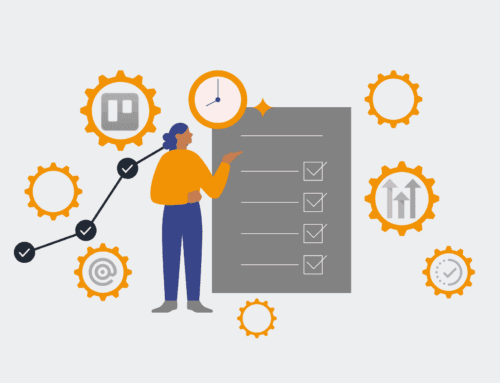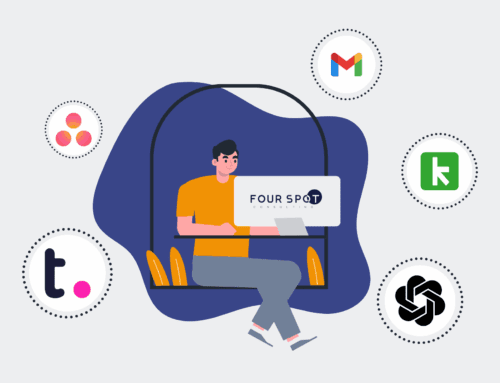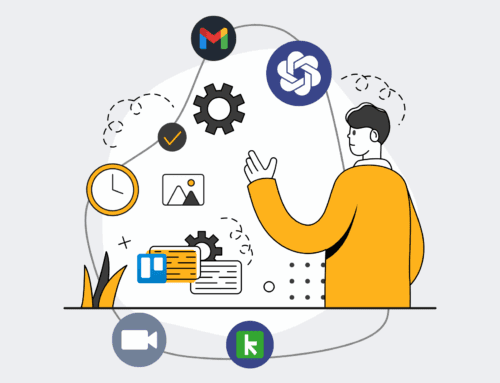Essential Recruiting & HR Technology Terms for Automated Scheduling
In today’s fast-paced recruiting and HR landscape, leveraging technology and automation is no longer an option but a necessity. To help HR and recruiting professionals navigate this evolving terrain, 4Spot Consulting has compiled a glossary of essential terms. This guide provides clear, authoritative definitions, highlighting how these technologies streamline processes, enhance candidate experiences, and drive efficiency through automated scheduling and beyond.
Applicant Tracking System (ATS)
An Applicant Tracking System (ATS) is a software application designed to help recruiters and employers manage the recruitment and hiring process more efficiently. From posting job openings to screening resumes, scheduling interviews, and tracking candidate progress, an ATS centralizes critical data and automates repetitive tasks. In the context of automated scheduling, an ATS often integrates with calendaring tools and video conferencing platforms to automatically send interview invitations, manage candidate availability, and confirm appointments without manual intervention, significantly reducing time-to-hire and administrative burden.
Candidate Relationship Management (CRM)
A Candidate Relationship Management (CRM) system is a technology solution that helps organizations build and maintain relationships with prospective candidates, similar to how a sales CRM manages customer relationships. It allows recruiters to nurture talent pipelines, engage with passive candidates, and keep them informed about relevant opportunities. For automated scheduling, CRMs are invaluable for segmenting candidates based on skills or interest, enabling targeted outreach for interview scheduling, and automating follow-up communications to ensure a smooth and personalized candidate journey, even before a specific job opening arises.
Recruitment Marketing Platform
A Recruitment Marketing Platform is a suite of tools designed to attract, engage, and nurture candidates through various marketing channels, much like product marketing. These platforms help create compelling career sites, distribute job postings across multiple boards, manage social media campaigns, and execute email marketing to potential applicants. When integrated with automated scheduling tools, recruitment marketing platforms can qualify leads and direct interested candidates to self-schedule initial screenings or informational calls directly from career pages or email campaigns, thereby streamlining the top-of-funnel recruitment process.
Automated Scheduling Tool
An Automated Scheduling Tool is a software application that facilitates the process of booking appointments, meetings, or interviews without the need for manual back-and-forth communication. These tools often integrate with calendars (e.g., Google Calendar, Outlook Calendar) and video conferencing platforms, allowing candidates to select available slots based on the interviewer’s real-time availability. For recruiting, this eliminates the significant administrative overhead of coordinating schedules, reduces no-shows through automated reminders, and dramatically speeds up the interview process, improving both recruiter efficiency and candidate experience.
AI Interviewing
AI Interviewing refers to the use of artificial intelligence to assist or conduct portions of the interview process. This can include AI-powered video interviews that analyze candidates’ spoken answers, body language, and facial expressions, or chatbots that conduct initial screening questions. While controversial in some aspects, AI interviewing, particularly for initial screenings, can be integrated with automated scheduling to streamline the first stage of evaluation. Candidates can self-schedule their AI interview at their convenience, and the AI provides initial assessments, allowing human recruiters to focus on the most promising candidates.
Talent Intelligence Platform
A Talent Intelligence Platform leverages big data and AI to provide insights into the talent market, helping organizations make more informed decisions about hiring, retention, and workforce planning. These platforms analyze vast datasets, including public profiles, company data, and internal HR metrics, to identify skill gaps, predict future talent needs, and benchmark against competitors. While not directly an automated scheduling tool, talent intelligence can inform the entire recruitment strategy, helping identify where to target automated scheduling efforts for in-demand roles, thus optimizing resource allocation and accelerating the hiring of critical talent.
Skill-Based Hiring
Skill-Based Hiring is a recruitment approach that prioritizes a candidate’s proven skills, competencies, and abilities over traditional qualifications like degrees or years of experience. This method focuses on what a candidate can *do* rather than just their background. In an automated context, skill-based hiring can be enhanced by AI tools that parse resumes and portfolios for specific skill keywords, or through automated assessments that evaluate practical abilities. Automated scheduling then facilitates the next steps, allowing candidates who demonstrate specific skills to quickly move forward to technical interviews or practical evaluations.
Digital Interviewing Platform
A Digital Interviewing Platform provides tools for conducting interviews remotely, often via live video or pre-recorded video responses. These platforms offer features like custom interview questions, scoring rubrics, and the ability for hiring teams to collaborate and review candidate responses. Integrated with automated scheduling, these platforms allow candidates to book their virtual interview slots or complete pre-recorded video responses at their leisure. This significantly reduces geographical barriers, improves flexibility for both candidates and hiring managers, and streamlines the logistics of multi-stage interview processes.
Onboarding Automation
Onboarding Automation refers to the use of technology to streamline and standardize the processes involved in welcoming new employees to an organization. This includes everything from sending offer letters and completing paperwork (e.g., I-9s, W-4s) to setting up IT accounts, assigning training modules, and scheduling orientation meetings. Automation ensures consistency, reduces manual errors, and improves the new hire experience. Automated scheduling is a critical component, enabling new hires to effortlessly book their HR orientation, team introductions, or initial training sessions, ensuring a smooth transition into their new role.
HRIS (Human Resources Information System)
A Human Resources Information System (HRIS) is a software solution that combines a number of systems and processes to manage a human resource department. An HRIS helps HR professionals manage employee data, payroll, benefits administration, time and attendance, and other core HR functions. While not directly for scheduling external candidates, an HRIS is crucial for internal automated scheduling, such as performance reviews, training sessions for current employees, or internal transfer interviews. It acts as the central repository for employee data, enabling seamless integration with scheduling tools to manage the entire employee lifecycle.
API (Application Programming Interface)
An Application Programming Interface (API) is a set of rules and protocols that allows different software applications to communicate and exchange data with each other. APIs are the backbone of modern integration, enabling disparate systems to work together seamlessly. In the context of automated recruiting and HR, APIs are essential for connecting an ATS with an automated scheduling tool, a CRM with a job board, or an HRIS with a payroll system. This interoperability ensures data consistency, eliminates manual data entry, and powers the end-to-end automation of complex HR workflows.
Workflow Automation
Workflow Automation is the process of using technology to automate a series of tasks or steps in a business process, triggered by predefined rules or events. The goal is to improve efficiency, reduce manual effort, and ensure consistency. In recruiting, examples include automatically moving candidates to the next stage after a successful interview, sending rejection emails based on specific criteria, or automatically provisioning new employee accounts upon offer acceptance. Automated scheduling is often a key task within a broader recruitment workflow, ensuring that interviews are booked and confirmed as part of a seamless, automated progression.
Robotic Process Automation (RPA)
Robotic Process Automation (RPA) involves using software robots (bots) to mimic human actions when interacting with digital systems and software. Unlike APIs which require direct system-to-system integration, RPA operates at the user interface level, performing repetitive, rule-based tasks such as data entry, form filling, or extracting information from documents. In recruiting and HR, RPA can automate tasks like copying candidate data from one system to another, generating reports, or even initiating automated scheduling processes by extracting data from an email and inputting it into a scheduling tool, bridging gaps between legacy systems.
Predictive Analytics (in HR)
Predictive Analytics in HR involves using statistical algorithms and machine learning techniques to identify patterns in HR data and forecast future outcomes. This can include predicting employee turnover, identifying top-performing candidates, or forecasting future talent needs. While not a direct scheduling tool, predictive analytics significantly influences automated scheduling strategies. For instance, by predicting the likelihood of a candidate accepting an offer, recruiters can prioritize scheduling interviews for candidates identified as high-potential, thereby optimizing recruiter time and improving offer acceptance rates by focusing on the most promising leads.
Conversational AI (in Recruiting)
Conversational AI in recruiting refers to the use of chatbots and virtual assistants that can understand and respond to human language, facilitating interactions with candidates. These AI agents can answer common candidate questions, provide information about company culture, screen candidates based on initial criteria, and even assist with scheduling interviews. By leveraging conversational AI, companies can offer 24/7 candidate support, automate initial candidate engagement, and streamline the early stages of the recruitment funnel. Candidates can simply chat with a bot to find out more about a role and then proceed to an automated scheduling link directly within the conversation.
If you would like to read more, we recommend this article: Mastering Interview Automation: 10 AI Tools to Conquer Scheduling Chaos









